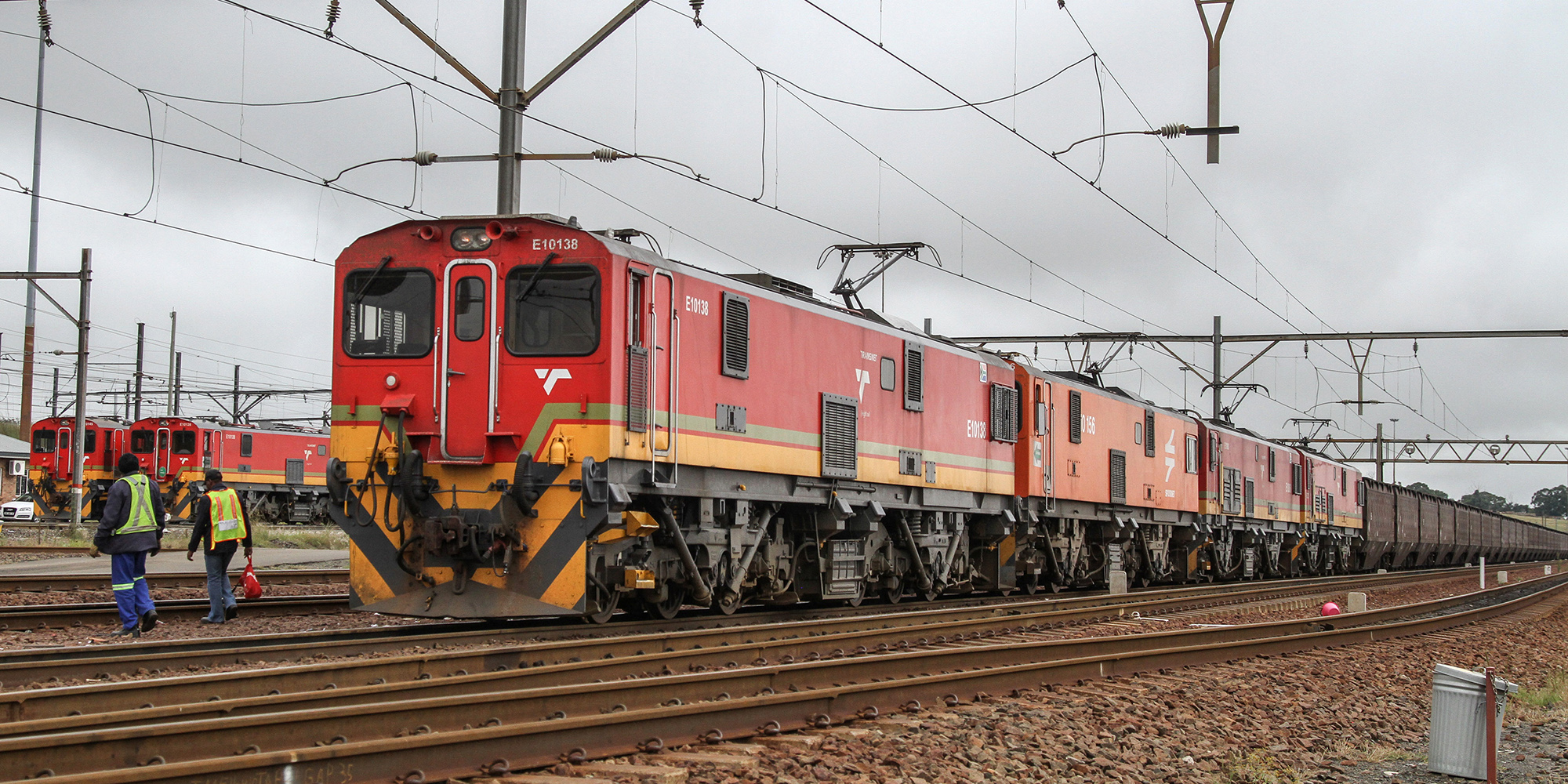State-run logistics company Transnet is back on the rails but still has a long haul ahead to get its groove back.
“We have not arrived. We have a long way to go,” group chief executive Michelle Phillips said on Friday, 5 September, as she unveiled the state-owned enterprise’s (SOE) 2025 full-year financial results, which showed a 74% narrowing of its loss to R1.9-billion from R7.3-billion in 2024.
Transnet remains in the red, but on most metrics is showing improvement.
The narrowing of the loss was mostly linked to a 7.8% rise in revenue to R82.7-billion while net-operating expenses fell 4.9%, with the latter trend pointedly stemming from a decline in third-party claims.
Missed targets
The company missed some key targets in the face of the usual suspects such as copper cable theft.

“Transnet’s rail freight volumes fell short of the 170 million tonne target. This shortfall is attributed to equipment shortages, maintenance backlogs, infrastructure vandalism and cable theft,” the company said.

Freight rail volumes were 160.1 million tonnes, almost 10 million tonnes short of the target.
It was a 5.5% rise over the 151.7 million tonnes recorded in the previous year but remains well short of the 226.3 million tonnes reached in 2017/18 before the SOE’s decline became precipitous, dropping to a low of 149.5 million tonnes in 2022/23.
If you have been wondering why there are so many lorries on the road, that explains it.
Volume losses remain a concern, with 7.1 million tonnes in losses from derailments and 4.5 million tonnes from copper cable theft.
“Critical infrastructure in this country is being attacked on a daily basis. Transnet spends almost R4-billion on security and yet we are still losing 4.5 million tonnes per year. If we reduce that by a third we will be profitable," Phllips said during the presentation at the JSE in Sandton.
Still, there was a 23% decline in total security incidents to 6,345 from 8,234 the previous year.
“Notably, fuel theft at Pipelines dropped by 73%, reflecting the success of targeted security interventions,” the company said.
Debt remains a pressing concern, with debt levels rising to R144.8-billion from R137.7-billion.
The South African government has guaranteed borrowings amounting to R43.75-billion and Transnet received an additional R99.6-billion for debt redemptions over the five-year corporate plan period.
“This is no bailout,” Phillips stressed. “The government has given us permission to borrow more money.”
Read more: The R145bn Transnet back brace to fix the spine of the South African economy
Ed’s take
It’s not easy to quantify, but tens of billions of rand in potential investment have been lost to the South African economy in recent years from Transnet’s failures, and tens of billions of rand have been lost in export revenue. That translates – outside of the trucking industry – into job losses and reduced profits for many industries. Transnet has become emblematic of state failure, and if it can turn itself around there is hope that other failing arms of the South African government can also turn the tide.
Transnet is still in many ways a shell of its former self, but it does seem the bottom has been reached after years of mismanagement and neglect. The private sector’s role is growing, and 11 private operators have been given the green light to use its rail network.
Read more: South Africa’s rail revival: new operators, old problems
Phillips said it would take 12 to 36 months to get the private operators on the rails.
Transnet’s mounting woes and crumbling performance have long been piercing thorns in the side of the South African economy, having an impact on sectors across the board, from mining to agriculture to retail to manufacturing.
Its rebound is, therefore, welcome and hopefully Phillips and her team can restore the SOE to its former glory. DM




 Railway workers walk across train tracks past a locomotive operated by Transnet SOC Ltd. at the company's rail depot in Ermelo, South Africa. Photographer: Dean Hutton/Bloomberg via Getty Images
Railway workers walk across train tracks past a locomotive operated by Transnet SOC Ltd. at the company's rail depot in Ermelo, South Africa. Photographer: Dean Hutton/Bloomberg via Getty Images